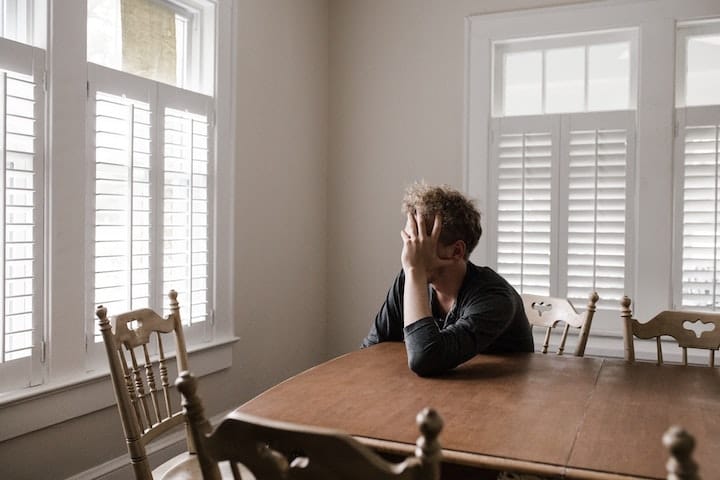Middlesbrough is a town located in North Yorkshire, England. It has a population of approximately 140,980.
Like most towns in the UK, under the surface, there is a drug and alcohol problem.
According to the latest data, there are 1.6 million people in England dependent upon alcohol, with an estimated 115,000 adults in structured alcohol treatment.
Only 6.4% of dependent drinkers access treatment for drug and alcohol abuse.
Abusing alcohol is sadly one of the most widespread addiciton concerns in the UK today, and in Middlesbrough there are estimated to be 2,704 adults (15–64) with alcohol dependency.
Clearly, there is a continued need for drug & alcohol rehab in Middlesbrough and near Middlesbrough.
Opiate-related addiction also remains an issue in Middlesbrough, with an estimated 2,315 adults (15–64) deemed opiate and crack users (OCUs).
The most popular substance in Middlesbrough is alcohol, followed by cannabis, heroin, and cocaine. [1]
The rate of alcohol and drug-related death in Middlesbrough and Teesside in general is also extremely concerning.
This article will be useful for anyone based in Middlesbrough looking to seek help for drug and/or alcohol-related issues.
It will discuss what rehab programmes are available, which addiction treatment approach is most suitable, how to access them and what specifically to expect.
Please call our 24-Hour Helpline: 0800 140 4690

It is not uncommon for people to wonder whether they should seek a professional addiction treatment approach even if they do have a substance dependency.
At any stage of drug or alcohol abuse, it is recommended that people seek help.
Addiction, in some cases, can occur gradually.
Alcohol addiction, for example, can be a process of gradually building tolerance and the body becoming dependent upon it as alcohol misuse grows more and more intense.
Understanding the signs of drug and alcohol addiction is important. Some things to look out for include:
Please call our 24-Hour Helpline: 0800 140 4690

When someone uses a substance for a prolonged period, the mind and body will become dependent upon it to function properly.
This is because the brain and body work to maintain a state of balance referred to as homeostasis.
Substances change this balance, and the body and brain must adjust.
When a person stops using an addictive substance, the brain and body will be thrown off balance and need the substance to feel normal – this can lead to withdrawal symptoms.
Withdrawal symptoms vary from substance to substance but tend to be both psychological and physical and include things such as nausea, vomiting, diarrhoea, sweats, headaches, and anxiety. [2]
This will be covered in more detail below, but just know that a drug & alcohol rehab programme in Middlesbrough and near Middlesbrough will always seek to address withdrawal symptoms as soon you begin your treatment.
Please call our 24-Hour Helpline: 0800 140 4690

Because substances change the brain, damaging cognition, people with substance dependency will often experience changes in their personality and behaviours.
With regards to the former, this might manifest itself in the person experiencing mood swings and being more aggressive, anxious, irritable or paranoid.
Common changes in behaviours include:
Because some of these variables apply to people that do not use substances, professionals have worked to develop tools to uncover addiction better.
Drug & alcohol rehab in Middlesbrough and near Middlesbrough will help you to better understand the triggers that are stopping you from living a substance-free life, and help you to break free from the above negative activities.
Please call our 24-Hour Helpline: 0800 140 4690

A popular addiction diagnostic framework used by drug & alcohol rehab Middlesbrough is the CAGE questionnaire.
Research has found that the CAGE questionnaire has a 93% success rate in determining addiction.
Each yes/no question was designed to uncover an aspect of addiction, such as habits, social impact, emotions related to substance use, and reasons for using.
For alcohol misuse, these are:
For drug misuse, these are:
Please call our 24-Hour Helpline: 0800 140 4690

Intervention, generally, is defined as the gathering of Concerned Others (COs) – usually family and friends – to convince a loved one to seek help for their substance use.
This may be suitable if a loved one refuses to attend drug & alcohol rehab Middlesbrough.
Interventions are usually held in a neutral place, such as the family home, and commonly have three main objectives:
When preparing to hold an intervention, there are some useful things to consider. Make sure to:
Interventions can be difficult and always have the potential to become confrontational.
It is, therefore, recommended to employ the help of a professional – a psychologist or psychiatrist, for example.
Please call our 24-Hour Helpline: 0800 140 4690

In addition, there are useful training programs such as Community Reinforcement and Family Training (CRAFT).
CRAFT was designed to help families that are struggling to get a loved one to seek help for drug or alcohol addiction. [3]
CRAFT has several main objectives. These include:
If you feel a loved one is unable to attend drug & alcohol rehab Middlesbrough due to denial, then arranging an intervention may be the most suitable option.
Please call our 24-Hour Helpline: 0800 140 4690

Middlesbrough is home to several free drug and alcohol services, such as The Live Well Centre. [4]
The Live Well Centre is accessible via self-referral. Services that the Live Well Centre provide include:
For more information about The Live Well Centre and how to access their services in Middlesbrough, please follow this link.
Please call our 24-Hour Helpline: 0800 140 4690

In addition to free services, there are some services accessible through both the NHS and private rehab facilities in Middlesbrough.
The NHS provides addiction outpatient treatment programs accessible through local GPs.
The NHS does not have residential facilities.
However, there is the possibility of accessing funding for drug & alcohol rehabilitation in Middlesbrough through the NHS.
To explore this as an option, people should speak to their GP, who will be able to assess their treatment needs based on their addiction history, their current rate of drug and alcohol use, their previous experiences with relapse and their recovery environment at home.
This will allow them to develop a personalised treatment plan designed to address the specific needs of each individual patient.
Access to funding is through an application made to the local council. It should be noted that funding is not easily obtainable.
This is because funding is limited, and often, people will need to meet strict criteria, such as already trying an outpatient program, attending local services, or attending a pre-rehab course.
Below, we list organisations offering state-funded drug and alcohol rehab treatments in Middlesbrough:
Telephone: 01609 777 662
Address: County Hall, 1 Racecourse Lane, Northallerton, North Yorkshire, DL7 8AD
Website: https://www.compass-uk.org/
Telephone: 01723 330 730
Address: 5 The Applegarth, Northallerton, North Yorkshire, DL7 8LZ
Website: http://www.nyhorizons.org.uk/
Telephone: 01904 464 688
Address: 3 Blossom Street, York, North Yorkshire, YO24 1AU
Website: https://www.changing-lives.org.uk/
Telephone: 01642 876 323
Address: Dundas Arcade, Dundas St, Middlesbrough TS1 1JA
It should be noted that most of these treatment options offered will consist of addiction outpatient treatment.
However, this does not mean you cannot access a residential treatment centre in the form of drug & alcohol rehab Middlesbrough. You will need to contact one of these organisations to find out more information or reach out to our referral specialists.
Please call our 24-Hour Helpline: 0800 140 4690

On average, it will cost people £300 to £500 per day for a residential treatment programme at a rehab centre – this covers the treatment costs, staff costs, food, bills and utilities.
For those who want to access a residential treatment programme, it will likely be worth exploring health insurance.
UK-based companies, such as BUPA and Aviva, offer health insurance packages that cover the some of the cost of addiction treatment.
These are significantly cheaper than paying for a stay at a rehab treatment centre yourself.
Usually, these packages cost between £150 to £250 per month.
Please call our 24-Hour Helpline: 0800 140 4690

This is a question that many people ask when they’re interested in seeking help for addiction.
The good news is that if you’re under 18, we can assist. Under 18s need to contact social services, who will be more than happy to help you with your drug or alcohol problem.
However, we do work with rehab clinics for teens elsewhere in the UK.
Rehab 4 Addiction has helped individuals all over the country and from all walks of life, and we have developed an excellent reputation for our services.
The process of choosing to join a rehabilitation centre in Middlesbrough for drug or alcohol addiction can be stressful and time-consuming.
But when you call us, we can do the job for you, ensuring that you can focus on winning your battle with drink or drugs.
We have a vast amount of expertise, and this allows us to match you with the right clinic for you.
Please call our 24-Hour Helpline: 0800 140 4690

There are many different types of drug and alcohol treatment, but the two most common are inpatientrehab and outpatient treatment.
Both offer similar programs: alcohol or drug detoxification, addiction therapy, relapse prevention and aftercare.
The main difference is that an inpatient alcohol and drug rehab programme in Middlesbrough is residential – the patient is required to stay at the facility for the duration of their treatment – and outpatient treatment is not.
Instead, outpatient treatment requires the person to attend appointments – usually at a doctor’s surgery or local service rather than a treatment centre – several times a week (12 to 14 hours per week).
Inpatient treatment is more intense and provides 24/7 medical support. It is, therefore, often recommended for people with severe addiction.
Inpatient treatment also lasts for a shorter duration – on average, 28 days, whereas outpatient treatment can last between six months to a year.
The main benefit of outpatient treatment is that it can often be accessed for free and can be fitted around other engagements, such as work or childcare.
The main problem with outpatient treatment is that it does not remove people from their normal environment.
This means that people will have access to substances and could be surrounded by potential drug or alcohol triggers. [5]
Please call our 24-Hour Helpline: 0800 140 4690

The first stage of any alcohol treatment is the alcohol detox process.
This can be a difficult and complicated process that often requires expert help in order to be navigated safely.
As mentioned, this can lead to withdrawal symptoms that can be both unpleasant and dangerous.
The most common alcohol withdrawal symptoms – typically occurring as part of Alcohol Withdrawal Syndrome – usually present several hours after the person stops drinking.
Alcohol withdrawal symptoms can range from mild to severe.
Mild to moderate symptoms include:
If a person only displays mild symptoms then they may be able to undergo a home detox rather than being treated at a dedicated rehab or detoxification centre.
Severe symptoms, which can be life-threatening, include:
Mild symptoms usually subside after several days, but some might last up to ten days during alcohol detoxification.
People are likely to be given detox medication to help counter alcohol withdrawal symptoms. [6] Usually, this will be a sedative such as Librium.
Librium helps reduce anxiety, improve appetite, and counter sleeplessness.
Librium is a popular detox medication for treating AWS as it is less addictive than other sedatives, which is why it is a staple of alcohol detox programmes.
Another medication used to help a patient stop drinking during an alcohol addiction treatment programme is Acamprosate (Campral®), which helps rebalance the chemicals in the brain that have been damaged by alcohol.
Alcoholism can also result in mental health issues like anxiety and depression, which means you might also get prescribed medications such as antidepressants like nefazodone, desipramine, or imipramine.
The opioid antagonist Naltrexone can also be helpful in cutting alcohol out of your life as it decreases the drive to consume alcohol.
Naltrexone helps to uncouple the relationship between alcohol and pleasure and can be a key step during alcohol detoxification and beyond.
The use of medications and the effects they can have is one of the reasons why alcohol detoxification is best conducted under medical supervision at a detoxification centre, rather than the less intense observation of a home detox programme or, most dangerous of all, a completely unsupported self-detox.
It is reported that about 14% of alcohol addiction sufferers develop liver cirrhosis if they continue their drinking habits for over a period of 8 years.
It is best to stop drinking today so that you can have the best chance at a full recovery.
Heavy alcoholics consuming at least 80g of alcohol per day for more than 10 years will develop liver disease at a rate of nearly 100%.
It is important to start your recovery now, as being an alcoholic is thought to drastically lower your life expectancy. For those who have been hospitalised, the average age of death for an alcohol addiction sufferer is 47–53 years in men and 50–58 years in women.
Please call our 24-Hour Helpline: 0800 140 4690

Withdrawal symptoms vary from substance to substance.
Cannabis withdrawal, for example, tends to be milder than other substance withdrawals.
While medications like Selective Serotonin Reuptake Inhibitors (SSRIs), especially Sertraline, can help reduce anxiety symptoms, it is helpful to prevent anxiety and other effects that cannabis might be causing you by quitting today.
A study by Wayne Hall and Louisa Degenhardt identified the adverse side effects of regular use of cannabis during adolescence and into adulthood can include ‘a dependence syndrome, increased risk of motor vehicle crashes, impaired respiratory function, cardiovascular disease, and adverse effects of regular use on adolescent psychosocial development and mental health’.
Get help today to start your journey to recovery.
Drug and alcohol rehab Middlesbrough can be accessed for many different types of addictions, including:
Please call our 24-Hour Helpline: 0800 140 4690

These symptoms usually occur one-to-three days after the person stops using and can last for up to ten days.
Please call our 24-Hour Helpline: 0800 140 4690

Cocaine withdrawal tends to be mostly psychological but does include some physical symptoms such as sweats, fatigue, and restlessness.
Other common symptoms include:
These symptoms can occur as quickly as 30 mins after the person stops using and can last between seven-to-ten days.
Please call our 24-Hour Helpline: 0800 140 4690

Heroin withdrawal is both physical and psychological, and symptoms range from mild to severe – the latter being life-threatening.
Mild to moderate symptoms include:
Severe symptoms include:
Symptoms usually begin six-to-twelve hours after the final dose and can between seven-to-ten days.
People are likely to be given Methadone, Buprenorphine, or Suboxone to help with their heroin detox process.
Due to the dangerous nature of heroin withdrawal and the extremely addictive qualities of heroin addiction itself, it is almost always recommended that patients attend a residential heroin rehab centre to give them the best chance of a safe and successful recovery.
Please call our 24-Hour Helpline: 0800 140 4690

Dual-diagnosis, or co-occurring disorder, refers to someone that has been diagnosed with both mental health issues and addiction problems.
Both mental health and substance use interact and influence each other in various ways.
For example, research has found that people with mental health issues are more likely to use a substance than those without.
By doing so, they increase their chances of developing a dependency.
In addition, data suggest that substances such as alcohol, cannabis, cocaine, and heroin all increase the chances of a person developing mental health issues – particularly if the person has underlying mental health issues. [7]
When you attend a drug & alcohol rehab programme in Middlesbrough, the issue of dual diagnosis treatment will be taken into account, particularly during the initial assessment process when your addiction history, rate of drug and alcohol use, drug and alcohol intake and other factors will be assessed to determine your recovery needs.
This will sometimes necessitate that you specifically join a rehabilitation centre that is equipped to provide extensive support for both conditions.
If you have not been medically diagnosed with a particular mental health condition before you begin your treatment, then such a diagnosis may be made during your residential drug and alcohol rehab treatment centre in Middlesbrough, with dual diagnosis helping to ensure that you receive the right treatment.
These therapies will be just as effective as those received through a dedicated mental health treatment hospital.
Please call our 24-Hour Helpline: 0800 140 4690

There are several different types of therapy people will receive at drug & alcohol rehabilitation in Middlesbrough.
Some of the most widely employed drug and alcohol therapy includes:
Please call our 24-Hour Helpline: 0800 140 4690

Towards the end of your time at a rehab treatment centre, you will be offered the opportunity to develop a relapse prevention plan.
This is done to increase your chances of maintaining sobriety after you finish your addiction treatment programme.
The relapse prevention plan is usually a written document that outlines recovery goals for the future, ways to stay sober – attending local services, for example – and potential triggers of addiction: environments, people, situations, or work, for example.
In addition, patients at an addiction treatment centre will work with a professional to develop tools that can be implemented if they start to struggle or face temptation.
This includes understanding and changing negative thought patterns, emotional management, and developing more positive communication skills. [9]
People will also be offered an aftercare program. This involves continued support, therapy, check-ups, and help to access local services such as Alcoholics Anonymous (AA), Narcotics Anonymous (NA), Cocaine Anonymous (CA) and SMART Recovery in Middlesbrough.
AA and NA allow you to benefit from their twelve-step programme.
You will be introduced to the twelve step recovery model during your time in a rehabilitation programme and throughout your drug or alcohol rehabilitation phase.
It’s also worth noting that there are 12-step groups that offer support to the loved ones of those affected by addiction, as well as treatment for those who are younger. These organisations include Al-Anon and Alateen.
Any drug and alcohol rehab in Middlesbrough that we recommend will follow the abstinence model of addiction recovery.
This means the aim of addiction treatment is total lifelong recovery
To achieve this aim, you will need to make significant changes to the way you live your life, and an extended aftercare plan coupled with the support you receive from fellowship groups such as AA and NA makes this goal achievable.
It is also possible to access sober living housing in the Middlesbrough area to ease the transition from a rehab treatment centre back to regular life.
This helps the overall goal of total sobriety and, for some, it can be an essential stepping stone towards their long-term recovery goals.
Please call our 24-Hour Helpline: 0800 140 4690

Call us today on 0800 140 4690 to complete a phone assessment with an experienced counsellor before you or a loved one attends a drug & alcohol rehab programme in Middlesbrough.
Alternatively, contact us through our website and we’ll do our very best to get back to you right away.
Our team works hard to ensure that your addiction treatment experience is as good as possible.
Rehab 4 Addiction offers options for a drug & alcohol rehabilitation programme across Yorkshire and North Yorkshire, including Leeds, Sheffield, Bradford, Middlesbrough, York, Wakefield, Hull, Doncaster, Barnsley, Halifax, Huddersfield, Harrogate, Rotherham, and Cleveland.
Please call our 24-Hour Helpline: 0800 140 4690
This article was written by Boris Mackey. You can connect with Boris online at LinkedIn or X.com.
[2] https://www.ncbi.nlm.nih.gov/pmc/articles/PMC4851611/
[3]https://www.tandfonline.com/doi/abs/10.3109/10826088509074831
[5]https://www.tandfonline.com/doi/abs/10.3109/00952998109009557
[6] https://www.aafp.org/pubs/afp/issues/2004/0315/p1443.html
[7] https://pubmed.ncbi.nlm.nih.gov/9801712/
[8] Shaffer, John BP, and M. David Galinsky. Models of group therapy. Prentice-Hall, Inc, 1989.
 Substance addiction, also referred to as Substance Use Disorder (SUD), is a chronic and relapsing brain disease that affects both physical and psychological functioning. It develops when repeated exposure to drugs or alcohol alters brain chemistry, particularly the reward and motivation systems, leading to compulsive substance use despite harmful c .... Read More
Substance addiction, also referred to as Substance Use Disorder (SUD), is a chronic and relapsing brain disease that affects both physical and psychological functioning. It develops when repeated exposure to drugs or alcohol alters brain chemistry, particularly the reward and motivation systems, leading to compulsive substance use despite harmful c .... Read More
 Addiction recovery is a deeply personal and individual journey. The decision to seek help for your drug or alcohol addiction and rebuild your life generally happens quietly, sometimes after years of struggle. But while recovery starts at an individual level, it’s rarely successful in isolation. Behind most long-term recovery stories is a time whe .... Read More
Addiction recovery is a deeply personal and individual journey. The decision to seek help for your drug or alcohol addiction and rebuild your life generally happens quietly, sometimes after years of struggle. But while recovery starts at an individual level, it’s rarely successful in isolation. Behind most long-term recovery stories is a time whe .... Read More